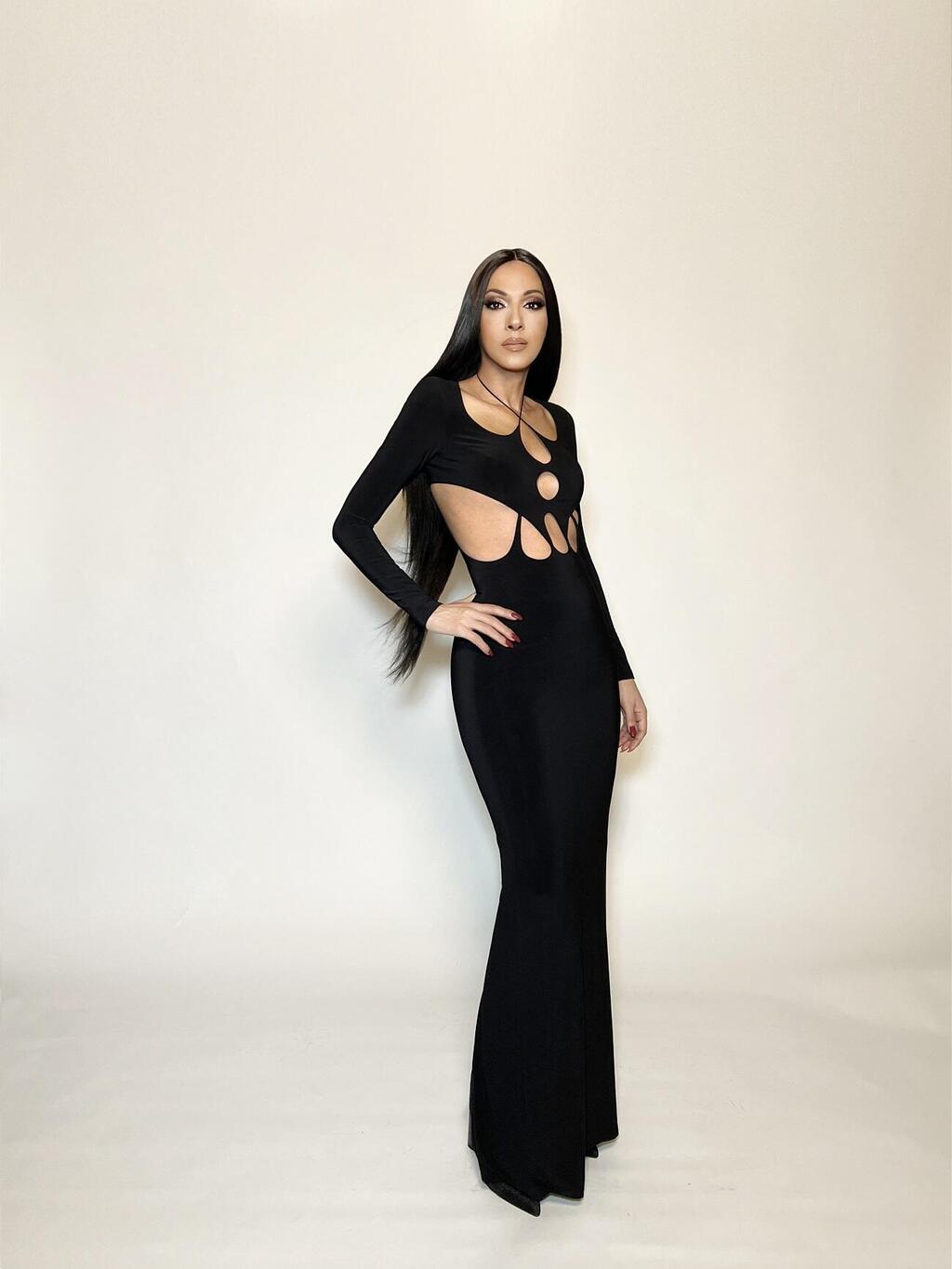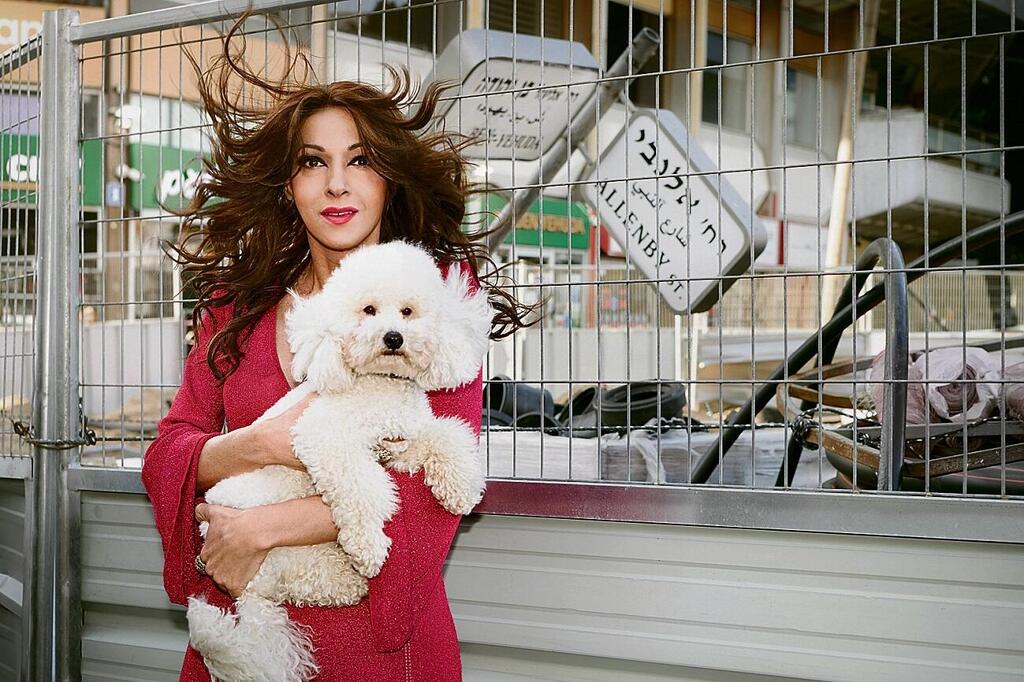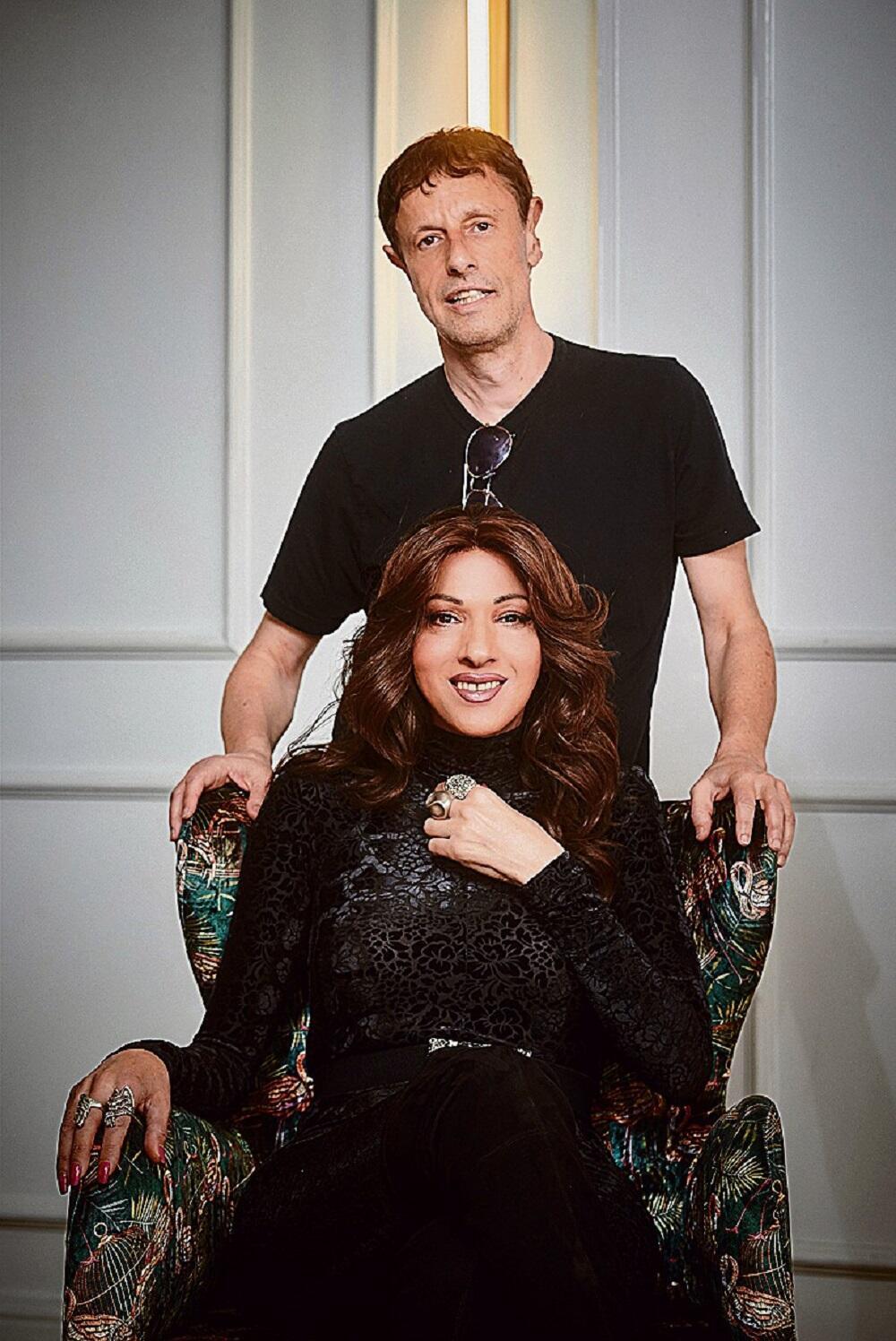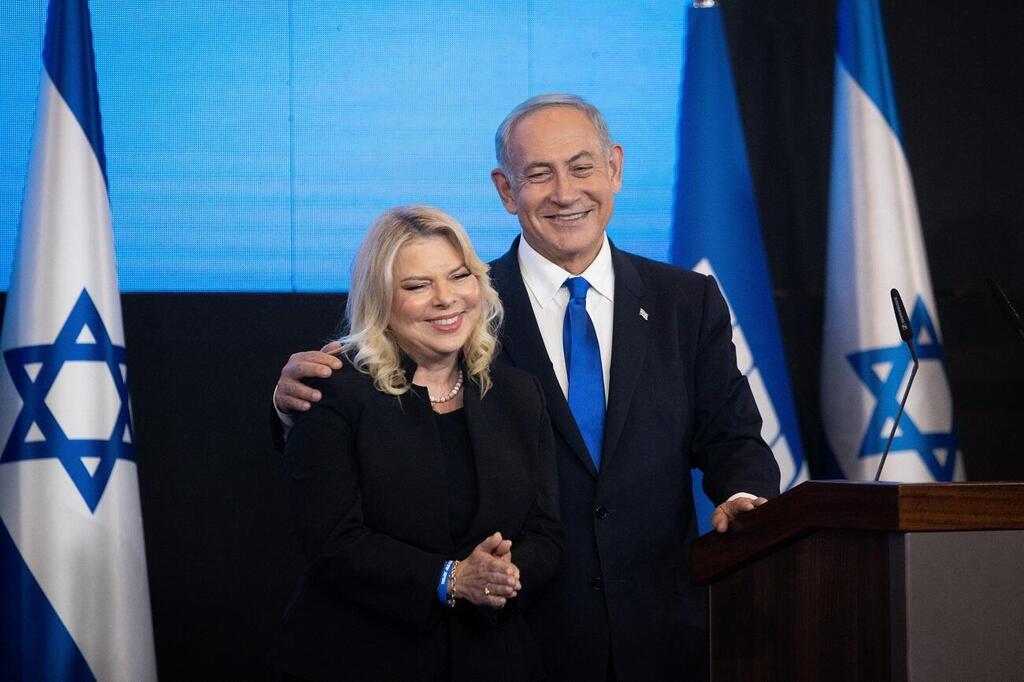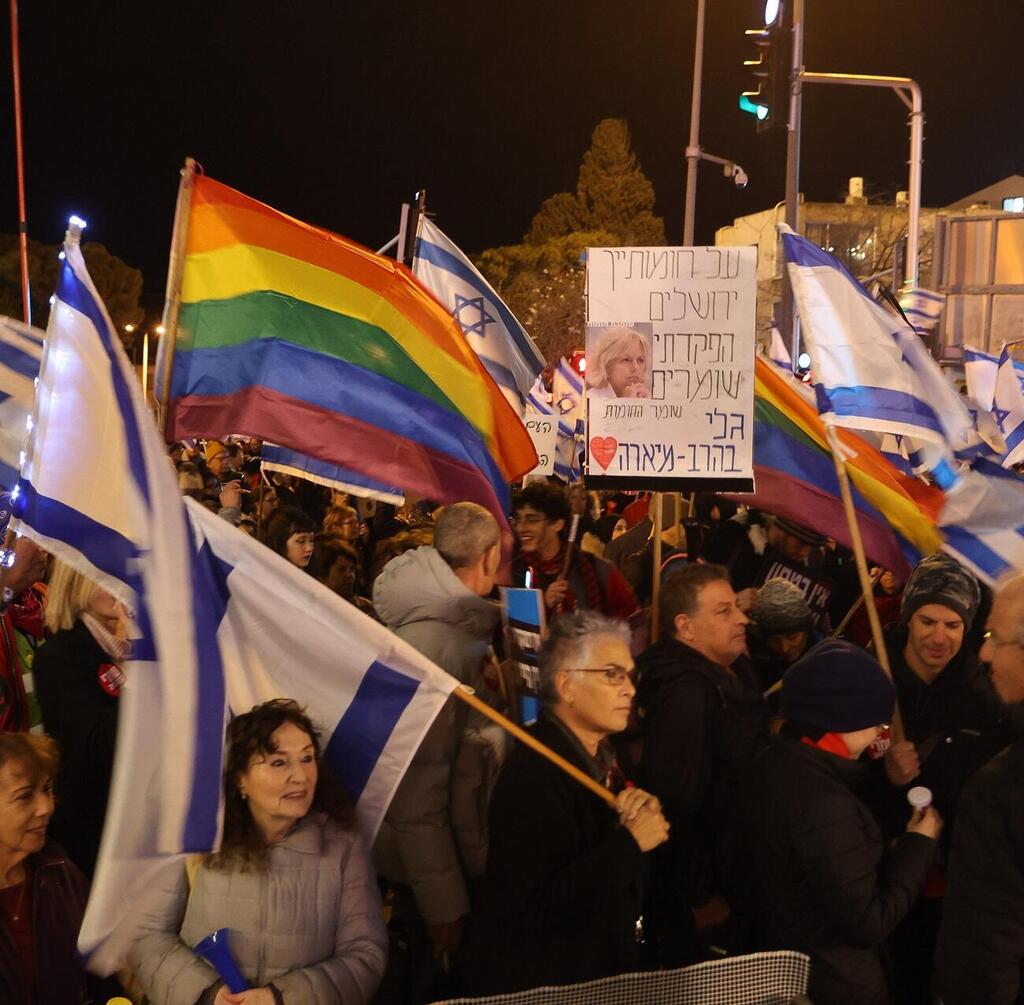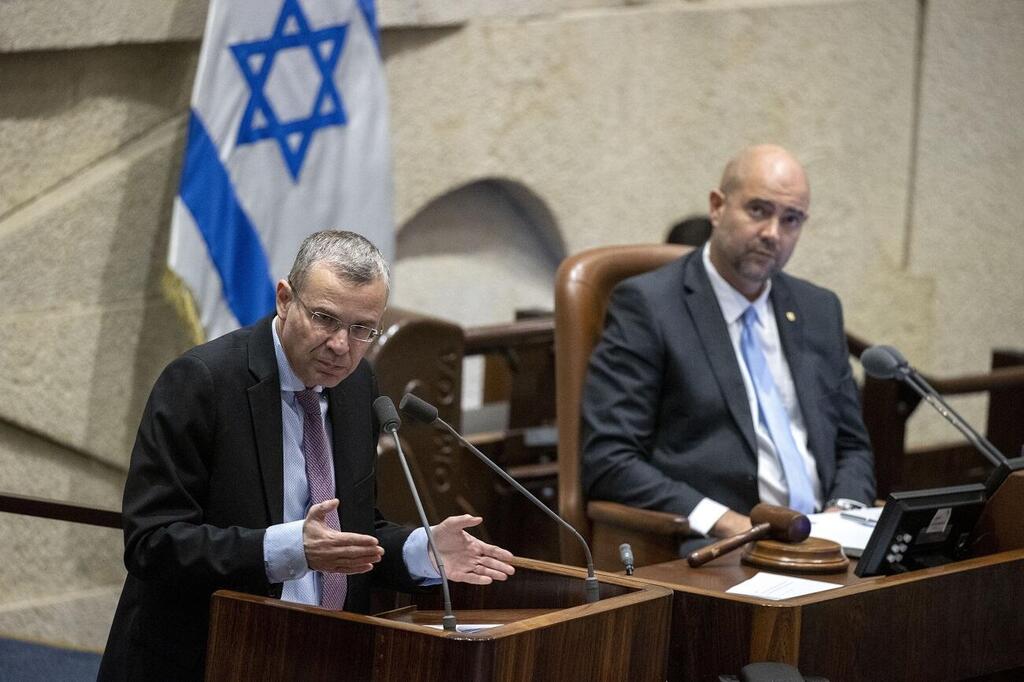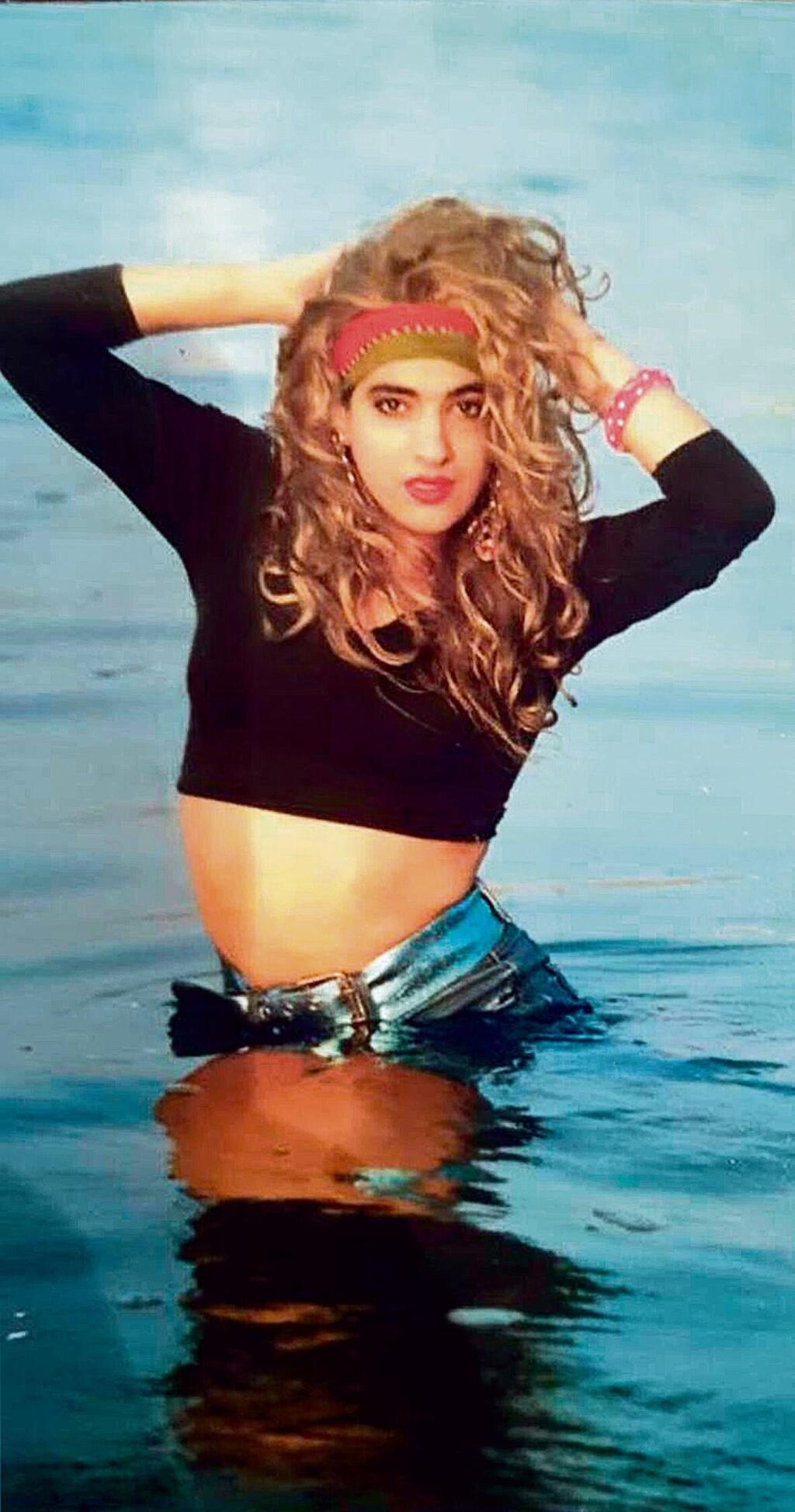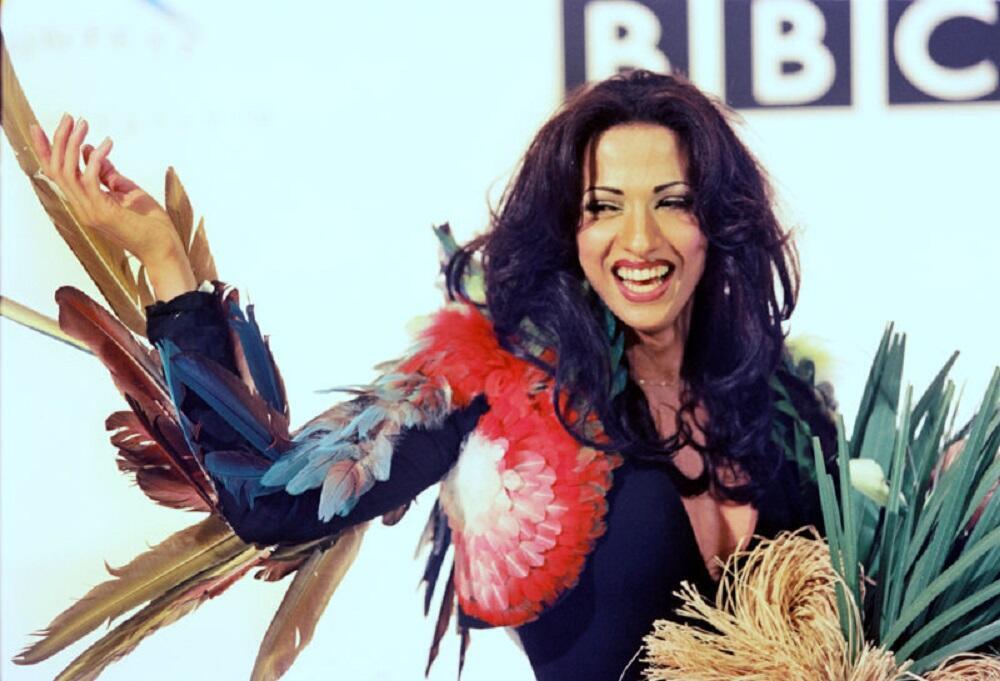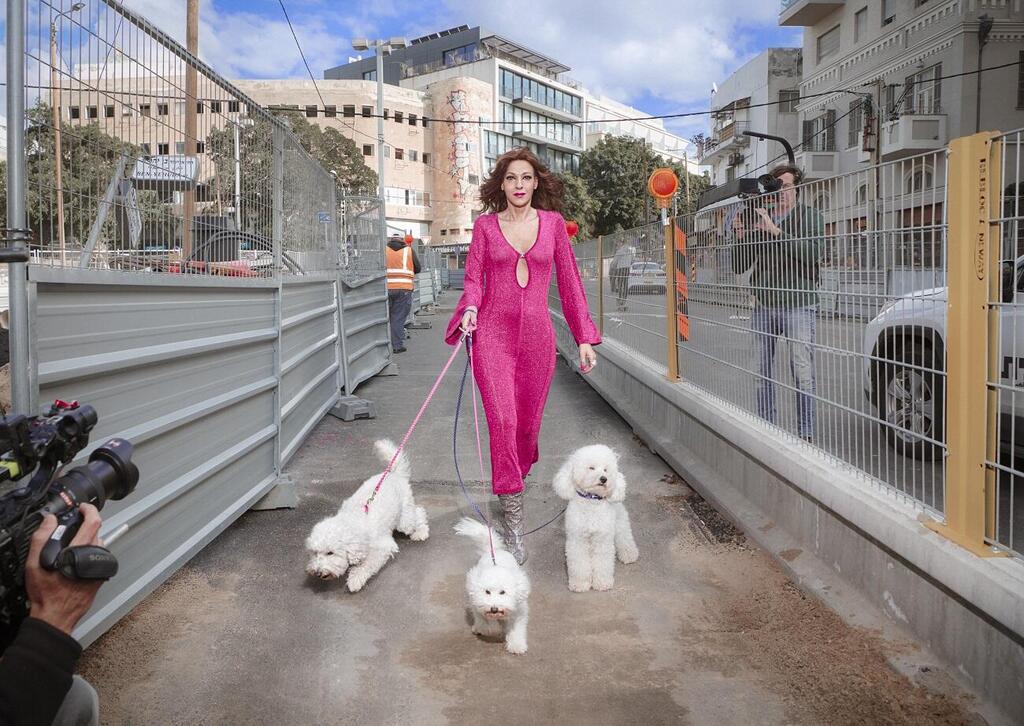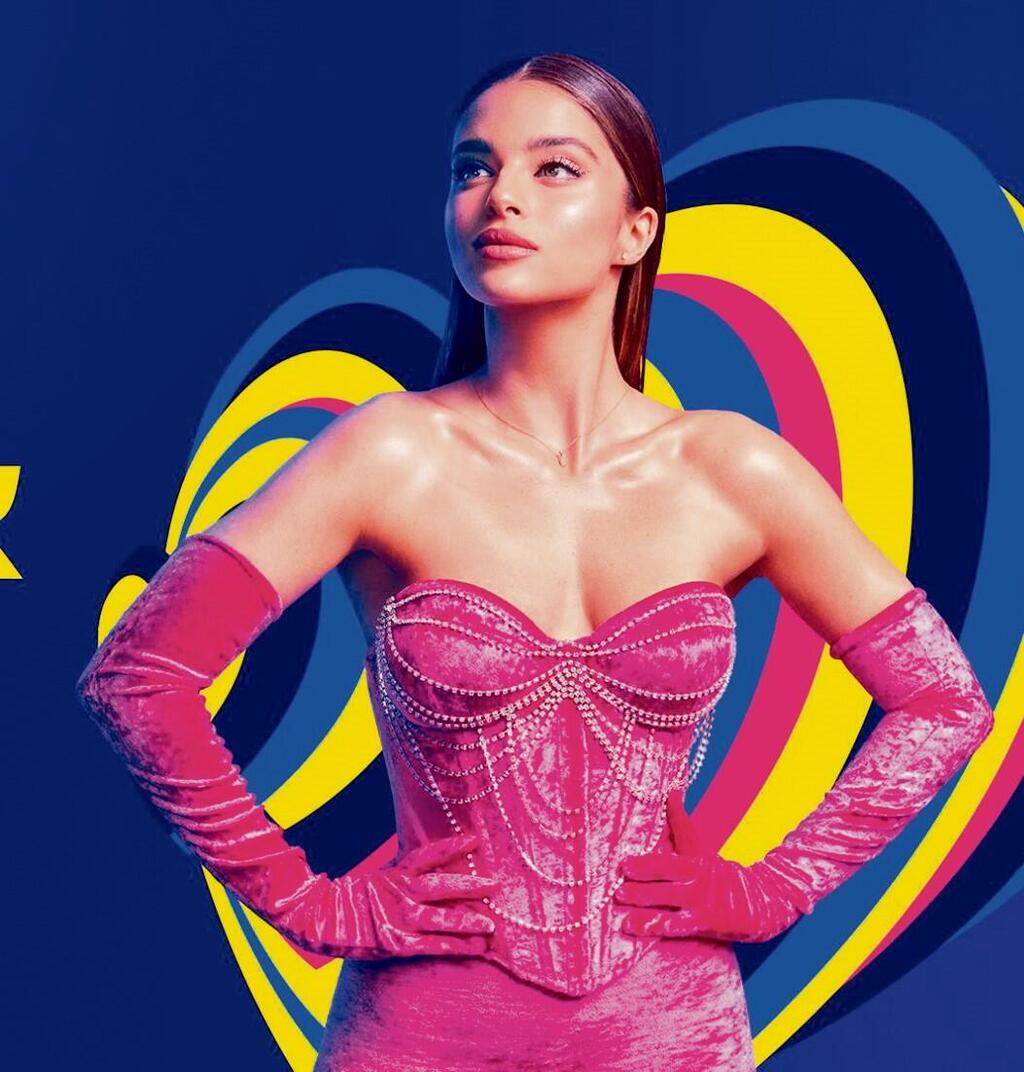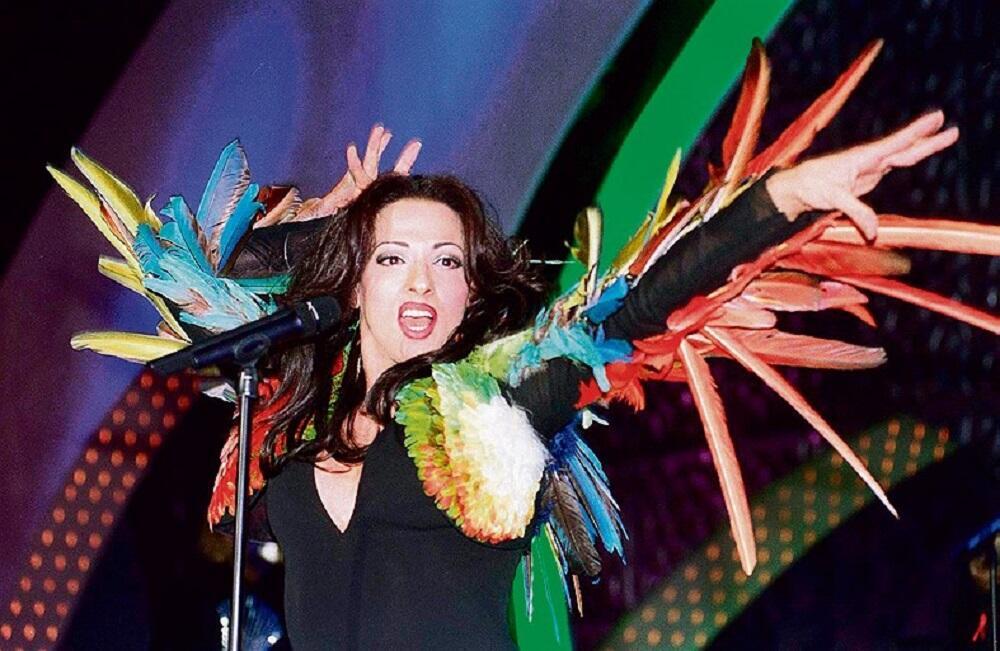Getting your Trinity Audio player ready...
Dana International, single, was born the middle son to a family of Yemenite descent and was raised in Tel Aviv. In the 1980s, she started gender-affirming treatment and reinvented herself as Dana. Her first single, “Saida Sultana” was released in 1992 and became an instant hit. The following year, she released her first album and has since released 11 more albums and dozens of singles and video clips both in Israel and overseas.
Stories that may interest you:
In 1998, she won the Eurovision Song Contest in England with “Diva”, composed by the late Zvika Pik, lyrics by Yoav Gina, turning her into a groundbreaking international star and a worldwide LGBT icon. Three decades on, Dana International ranks among Israel’s most successful singers and she serves as an “ambassador” for Israel all over the world. She is currently starring in YesTV’s reality series, “Dana Kama.”
What do you say when people ask you about Israel?
“It’s not really talked about in Israel, but Bibi’s [Prime Minister Benjamin Netanyahu] Foreign Office uses me a lot for hasbara overseas. A few years ago, a hasbara video clip was distributed for Yom Ha’aztmaut (Israel’s Independence Day). They included over 70 facts that people don’t know about Israel – about hi-tech, beaches, Tel Aviv etc. One of the items was the fact that although Israel isn’t a monarchy, we have a queen: Dana International. They filmed me with a crown and a scepter, using me to show off the country’s liberal values. It was sent around the world.”
Smart move, but being proud of you overseas one thing, how come you haven’t been invited to, let’s say, light a torch at the Independence Day ceremony? I think you deserve it.
“Correct. I’ve never even been invited to not perform. I take it in my stride. I understand that I’m good for the country, that I can be an ambassador overseas because the world’s not interested in Sarit Hadad. Yes, not being invited to the Independence Day official state ceremony hurts. One year the theme for choosing torch-lighters was ‘trailblazers.’ I think I’m there.“
Definitely, but you’re preaching to the choir
“There was another year that the theme was about people who had brought Israel respect and admiration around the world. To tell you the truth, I’m less interested in all of this. What I see is all the embassies asking me to help them with hasbara when I go to perform in Europe. A few years ago, Swedish TV gave me a prize for my contribution to the LGBT community in Europe.
The ambassador called my manager, Shai Kerem, asking for a joint photo and told me that the hasbara that I do in just a couple of days is stronger than what Foreign Office emissaries do in a whole year. It’s very touching. I know that Shai has taken the torch-lighting thing much harder than I have. He can’t understand how they use us in the rest of the world, but when it comes to official state ceremonies, they’ll always take a Mizrachi singer to suck up to the Likud crowd.”
I can’t agree. They have singers from all ethnic backgrounds.
“True, but not from all genders. The bottom line’s always the same. I don’t feel the need for approval from the establishment. I know how we started out. The whole world was closed to us. I look at how far we’ve come, and less at who won’t accept me because I’m transgender. It’s not about left and right. When Yair Lapid was in government, Shai called then Minister of Culture and Sports, Hili Tropper, to talk to him about my performing at a state ceremony. It ended the same way as it did with Miri Regev.”
I also haven’t seen you at any of the annual ceremonies on Memorial Day for the Fallen Soldiers at Rabin Square.
“Let me tell you something I’ve never spoken about: The Tel Aviv Municipality, which invites me to Pride events and Independence Day celebrations, won’t let me be part of “Songs in the Square.” This performance is unpaid, so it’s not about the money. It’s about my wanting to be a singer in this part of Israeliness too. Shai has been talking to the Tel Aviv Municipality for four years, and they keep putting him off with various excuses. It turns out that even under liberal Ron Huldai, I don’t belong at “Songs in the Square.”
One might say that you’re being used for “pinkwashing”
“There’s something to that. I feel that sometimes. When I performed at Europe’s biggest Pride parade in Madrid, the Foreign Office asked me to be a guest of the Israeli embassy and give a press conference. They gave me a list of talking points. I didn’t feel entirely comfortable about it. I find ways of saying things in my own way, even if I don’t agree with some of the government’s positions. You shouldn’t wash your dirty linen in public.”
You say you trust Bibi, that he’ll deal with everything. So here, the prime minister himself is stepping up to address the problems. What do you think about how he’s been dealing with the current crisis?
“I’m disappointed. I’m disappointed by people not accepting my sympathy for the demonstrators and I’m disappointed by the responses to what I said about Bibi. They’ve made me a Bibi supporter. For some, that’s an unforgivable crime. No, I don’t support Bibi, but I know a thing or two about struggles and the battle for public awareness and how to bring over to your side people who don’t agree with you. I said that because I think that, with the rift between the two sides, it would have been more precise to say that we trust Bibi that he won’t let it carry on this way.“
Archives show that you’ve met Sara Netanyahu at numerous events. What can you tell us about that?
“I like Sara. She once came to the opening of an exhibition about me. I was surprised to find that she’s actually quite shy. She was lovely and warm toward me. She showered me with love and I believed her. I can’t be ungrateful for how she treated me. I think the claims that she controls him, decides political appointments or prohibits all sorts of things are irrelevant. He’s a public official and these things have to be addressed to him. If she has such influence over such a great statesman, so well done on the female power. When I hear clips recorded secretly by people supposedly close to her, and she’s shouting, I hear distress. “
Following your Eurovision win with “Diva”, you became world-famous. You’re one of Israel’s most internationally recognized singers. I personally saw how you were lovingly embraced on the streets of Belgrade. Have you ever thought of leaving Israel? Maybe now with the current situation?
“After Eurovision, a record company asked me to move to London. You can’t build up an international career living in Israel. I tried. I suffered. I didn’t enjoy it at all. I was born and raised in Tel Aviv. I only feel at home here. I’m very proud of it. I sometimes think that my inability to live for long in other countries might be a weakness. Immigrants are brave people who decide to recreate their lives the way they want them to be. I can’t do that. It’s made me lose out on a lot.”
Like what?
“Let’s say a big record deal. Sony Music’s CEO once said to me: ‘I don’t understand you. You’re handed on a silver plate everything any artist would dream of, and you’ just throw it away.’ I didn’t throw it away. I just couldn’t pay the price of leaving the country. It didn’t happen then, and I’m definitely not thinking about it now.“
Are you fearful for LGBT rights under this government, especially under the judicial overhaul?
“Not everyone in the LGBT community is going to like my answer. I’m not afraid and I don’t like the fearmongering. We’re strong, we’re many, and we have influence. No one can push us backward. I think that isolated statements from individual politicians against the LGBT community are voiced for their own purposes, for their own audiences. We don’t have to treat every sentence uttered against the community as if it gives them more power. These statements are so detached from reality, from human nature and from where the world is today. It’s feeble-minded and it’s wretched. We are nature. They’re the freaks."
In November 2021, you wrote on Instagram about a sexual assault by a “famous, powerful person.” What’s changed since this brave testimony? Has the person in question contacted you? Has he apologized? Are you still not saying who it was?
“There was a particular time in my life when I felt the need to say what I did. I feel the efforts to find out who it was are intrusive. People wanting me to say who it was isn’t really about helping other victims. No. That person hasn’t tried making contact. He hasn’t apologized. I don’t even know that he understands that it’s him. I’m sure he doesn’t behave like that anymore. He really thought he was God’s Gift and that my pulling away, terrified, when he pressed his lips against mine was my being coy, overriding passion, rather than true disgust that I didn’t dare show. I lot has changed since then. I’ve grown up, and I understand more about the world. The world has changed. I think he also understands that you can’t behave like that.”
In Likud, they’ll say that they’ve taken an important step for the LGBT community in appointing a Knesset speaker who’s out. On the other hand, what do think about the argument that Amir Ohana is no more than a fig leaf for an extremist government?
“What I’m about to say, may not go down well in the LGBT community, but our flag is one of inclusion, accepting the other, embracing the colors of the rainbow, regardless of party affiliation or political views. Perhaps, for this reason, Ohana is one of the most important and influential people advancing the status of the LGBT community. He deserves a place of honor in the history of the community in Israel. How can you not get emotional when, while swearing in a dark, extremist government, the Knesset speaker thanks his (male) partner? I think of the thousands of youngsters in traditional, right-wing families watching Ohana on television with their families and not saying a word. They’re so proud of him and happy that their parents are watching him and that they like him as a politician and accept that he’s gay. They feel it’s possible. One day, they’ll tell their parents what they’re afraid to tell them now.“
When you released your first song, 31 years ago, were you offended when they said you were a gimmick?
“Not really. I might have even believed it myself. I couldn’t have imagined in my wildest dreams one-tenth of what came after that. When my first song was played on the radio, I recorded the presenter saying ‘Dana International.’ For me, that was the top. The happiness it made me feel was greater than all the success in all the years that followed. I’d have been thankful for a career lasting two or three years. I’d have asked for nothing more.“
We used to call you the Queen of Pop. It’s hard to survive in that genre. What have you been doing right to keep your career going for three decades?
“That title tells me I’m not as young as I think I am. When I started out, I had with me Dafna Dekel and Sharon Haziz, Adam and Noar Shula’im. Then Hi-Five, Dana Berger and Ben Artzi. Then Subliminal and Static and Ben El. Now we have Noa Kirel and Mergui and Aunt Dana. It’s strange to think that I started out as the youngest, wildest one and now I’m solidly Mainstream. I have no answers to what’s happened over the years, especially when I see how ambitious and industrious other artists are. I’m lazy. I’ll always take a week’s vacation over a week’s work. I never chose to be a pop singer my whole life. I’m sort of imprisoned in the genre.”
What do you mean imprisoned?
“It means I’m obligated to wear sparkly clothes. I need to produce new sounds, hair, make-up and fashion. My dream is to get up on stage in jeans and a t-shirt like Yehudit Ravitz. I hate getting made-up and wearing designer clothes. I don’t like fashion but will be the first to admit that this is how the audience loves me. I represent something larger than life. I have to play the game.“
How did you deal with COVID, with no venues to play?
“The world stopped. Suddenly everything I had disappeared. No overseas, no shows, no getting dressed up as Dana International. No career. Nothing. I’m not the kind of artist that can perform in a living room or sing with a guitar outside a building. I felt I was in a sci-fi movie in which I’m not a singer anymore. It was in that quiet, that I let myself accept, understand and glean satisfaction from what I’d been blocking out all those years.”
What do you mean?
“Accepting what people tell me. The first time I met fans in the 1990s, a youngster told me that I’d given him the courage to be who he is. I was taken aback. I said then, and I’ve been saying ever since: “Don’t take me as an example. Don’t look at me and take my personal story to your life. I’m me and you don’t know quite how much pain and suffering I have in my life. I don’t want to be a symbol, an icon or a role model.“
But why?
“It’s a lot of pressure when people make decisions in their own lives because of figures they see in the media. It took me years to realize that it’s okay to accept things I hear from so many people in so many countries, in so many languages. Things like: ‘You gave me courage. I’m me because of you.’ I hope it doesn’t sound arrogant, but very few artists really manage to touch people’s lives, change views and opinions, especially in pop, which is considered rather lighthearted.”
For years, you’ve been a very private person. You’re not involved in the celebrity scene and you don’t talk about your private life. Why did you agree to do a show designed to reveal everything you’ve been trying so hard to conceal?
“Age, COVID, money and Shai who talked me into it. I still don’t know how he convinced me to do it. The show was the hardest project I’ve ever done. There’s Dana International, the character I’ve built up over years, which is obviously me, but that Dana is only one part of what I am. I never let myself believe that I’m that Dana – the star, the international diva. It would drive you crazy if you believe that your public persona is what you really are. So yes, I’ve always kept my private life private: The Dana behind the make-up, my family and my real friends. I don’t have any friends from the industry.”
Because?
I don’t believe in it. It’s fake. It’s a lie. It’s competitive. When Shai suggested the idea of the show, he talked about cameras following me on a new leg of my career: recording songs, filming video clips, getting back to work after COVID. The series could end either in massive failure or resounding success. For Yes, it’s a win-win. For them, it’s all the same if ends in tears. It might even make for better television. Either way, it was a time we had to pick ourselves up and start recording. Because I’m so lazy and I put things off, it was great that we had to get back to work. It was also hard to turn down the money.“
Your mother, Bat Galim, agreed to be filmed for the first time.
“My mother and I have always been close. It’s a special kind of love. I’ve never lived more than 100 meters away from her. There was a turning point when I began my transition. My mother found it hard to accept. Just after that, my first song was released and private Dana became nationally famous. That was also difficult for my mother. Some family members said that I was bringing shame on the family and cut off all contact with her. Along with success as a singer, I experienced these very painful things. It took less than a year for us to get back to being a close and loving mother and daughter. In my relationship with my mother, it’s always been the private me. Dana International was never there. My mother has never come to see me perform.”
Doesn’t that hurt?
“Perhaps in the early years, but I repressed it. I choose to see the good in our relationship. Maybe it’s healthy that my career is detached from my family relationships.
On the night of Eurovision, before going out onstage, I remember sitting in the hotel room, looking up at the grey sky, thinking that of all the mothers of all the contestants, my mother most deserves to feel proud.
At the end of the day, we all want our parents to be proud of us. I believe she was proud, but even after Eurovision, we didn’t talk about my career. It wasn’t part of our family conversation. When I’m overseas, I call her like any other day to tell her that I’m at work. She doesn’t ask and I don’t say. I didn’t think she’d agree to be in the show. “
Why did she this time agree to go public, involving herself in your career?
“I think her being in the show is her way of telling me she loves me. My elder sister, Limor, that you’ll also see in the show, is the exact opposite of me. She’s very well put together – from head to toe, with long blond hair - and it’s not like she was born with hair like that. She’s the real Dana. She’s a peacock. I just play the part. In real life, I’m Lady Shmattes. I don’t wear make-up and I hide behind huge sunglasses.”
You always say that your dogs are your lovers. What about human love? In the show, you say “I’ve given up.” Isn’t that a bit sad?
“Why sad? I don’t understand. The whole thing about relationships is one big lie. I had one great, true love in my 20s at the height of my success in Israel. He was the most important thing to me. He made me feel loved. I was willing to give up my career for him. But it came to an end.
Years later, he was killed in a motorcycle accident. Something closed up after that. I’ve lived it. I’ve experienced it. I know the price. I know what it gives and I choose to live without a partner, without a relationship. Love and passion are transient. What’s left is friendship. How many couples are really friends for life? How many lies, secrets and loneliness do couples have in their relationships?”
There are couples with healthy relationships that last for years
“But how many live together because that’s what you have to do, because that’s what is accepted and because people think it’s sad when you say you don’t want a relationship? There are a lot of guys in this world that you can love for one night. “
Do a lot of guys hit on you? Do you hit on guys?
“When guys hit on me when I’m Dana International, I’m not interested. You wouldn’t believe how many singers and celebrities have tried it, even Mizrachi singers.”
What do you think of dating apps?
“For me, it’s great. The option of sex that’s available 24 hours a day, and not as Dans – it’s a gift. I don’t use it much, but I’m happy just knowing it’s there.
As Eurovision Queen, what do you think are the chances of Noa Kirel’s “Unicorn”?
“I really hate questions like that. Ever since my win, I’m asked the same question every year. Multiply that by the number of countries competing, and you’ll get to the number of times I’ve been asked how my mother reacted to my transition. She’ll do great. First to fifth place."
Kirel has been quick to mention that voting can also be political. What do you think?
“Sweet Noa did indeed point out what every Israeli Eurovision contestant before her, over the past 50 years, has also said. When Israel won four times and got to third and fourth place ten times, those were years without politics, and when we didn’t do well, it was politics? It’s a fun, camp, colorful song competition with an audience of millions.
There are a lot of terrible songs and a few good, fun ones. That’s how it is. The song with the most points, wins. It’s not about love or hate towards any country. There are a lot of Jews and Israelis in Europe who always vote for Israel, so it balances out the haters. I don’t like the all-the-world-hates-us excuse.”
Do you think the chaos in Israel will have any effect? Do you think Kirel should talk about Israeli democracy when she’s there?
“Noa should talk about whatever she wants. She’s a sweet young pop singer. She’s not a Zionist emissary. She’s going to sing and dance, not give her opinions on democracy. If there are things that are important to her, then she should talk about them. If what’s worrying her is democracy in Israel, then that’s what she should talk about. I have the feeling that what will be more important to her is how she looks, what she’ll wear and how many points she gets. And that’s just fine.“
Zvika Pik, who wrote “Diva” passed away eight months ago
“The greatest hit he ever wrote and the song that changed my life, transforming me from an Israeli singer, to a world-famous star,” she says. “Rolling Stone recently chose the top 20 gay anthems of all time. ‘Diva’ was among them. For Zvika, my win was both his day of joy and his day of tragedy.”
Why tragedy?
“His lifelong dream was to take part in Eurovision. In the end, he found himself on stage as a winner, but not as a singer, but rather as a songwriter. A minute after the song won, Zvika was still in a state of shock. He said to Shai: ‘If I’d have sung, it would have won.’ Shai said to him: ‘But Zvika, the song just won.’ Zvika then thought for a moment and answered ‘but by more points’.”
“I miss Zvika. The sheer pain and sadness after he died came to me as a surprise. We fought a lot. We laughed a lot. I sometimes look at our last text messages. He’d write me messages sometimes. We talked about doing a new song, but I realized it wouldn’t happen. He wanted to believe it would, but he wasn’t capable of playing or singing towards the end of his life.”
When did you last cry?
“I don’t cry. Unfortunately, I don’t know how to cry. I sometimes want to, but I don’t have the mechanism that produces tears. My anger is my crying.“
What piece of advice would you give 16-year-old Dana?
I’d hug her and tell her to carry on being who she is, because she’ll soon discover that being different isn’t necessarily such a problem, that it has its magic.”
What’s your greatest fear?
“Cockroaches. I climb on chairs, screaming until someone gets rid of the cockroach, or crushes it to death.”
What’s your greatest regret?
“A lot of days of sadness. I now realize that they could have been wonderful, happy days.”
Why was the 1999 Eurovision in Israel your most embarrassing moment?
“I had to give the trophy to the Swedish winner, Charlotte Nilsson. I lifted it up and it was really heavy. The Swedish songwriter stepped on my Gaultier dress and I fell flat on the floor with millions watching. It was so embarrassing. I pretended everything was okay, but inside I wanted to die.”
What will be the find sentence in your biography?
“It ended too soon.”
What’s your favorite smell?
“It’s really unoriginal, but the smell of the first rain in Tel Aviv. I live near the beach and the smell of the rain on the sand gives me a feeling of regeneration.”
What was your best kiss?
“I don’t know if it was the best, but the most exciting: In England, we filmed a video clip for ‘Woman in Love’ and the record label brought in an exceptionally beautiful model – one of the most beautiful guys I’ve ever seen. We were supposed to kiss on the lips during the video. I thought it would be just a kiss on the lips, but somehow, with the chemistry between us, our tongues met. We carried on kissing long after the director shouted cut. It wasn’t a loving kiss. It was more of a fantasy kiss with the boy from the poster on my teenage bedroom wall.”
What song will they play at your funeral?
“I don’t know. It should be a dreadful, annoying song so that people won’t have a single moment of joy as they throw my body into the ground and cover me with earth.”
What’s your guilty pleasure?
“Thousand-page science fiction novels. I immerse myself in scrambled, bizarre worlds that take me away from the real world.”



